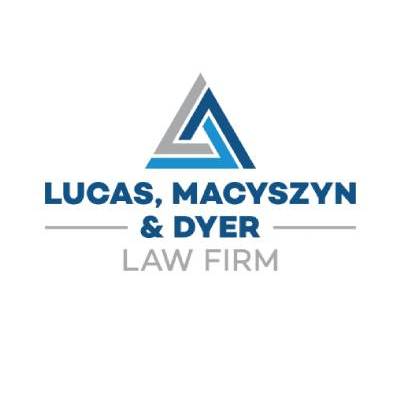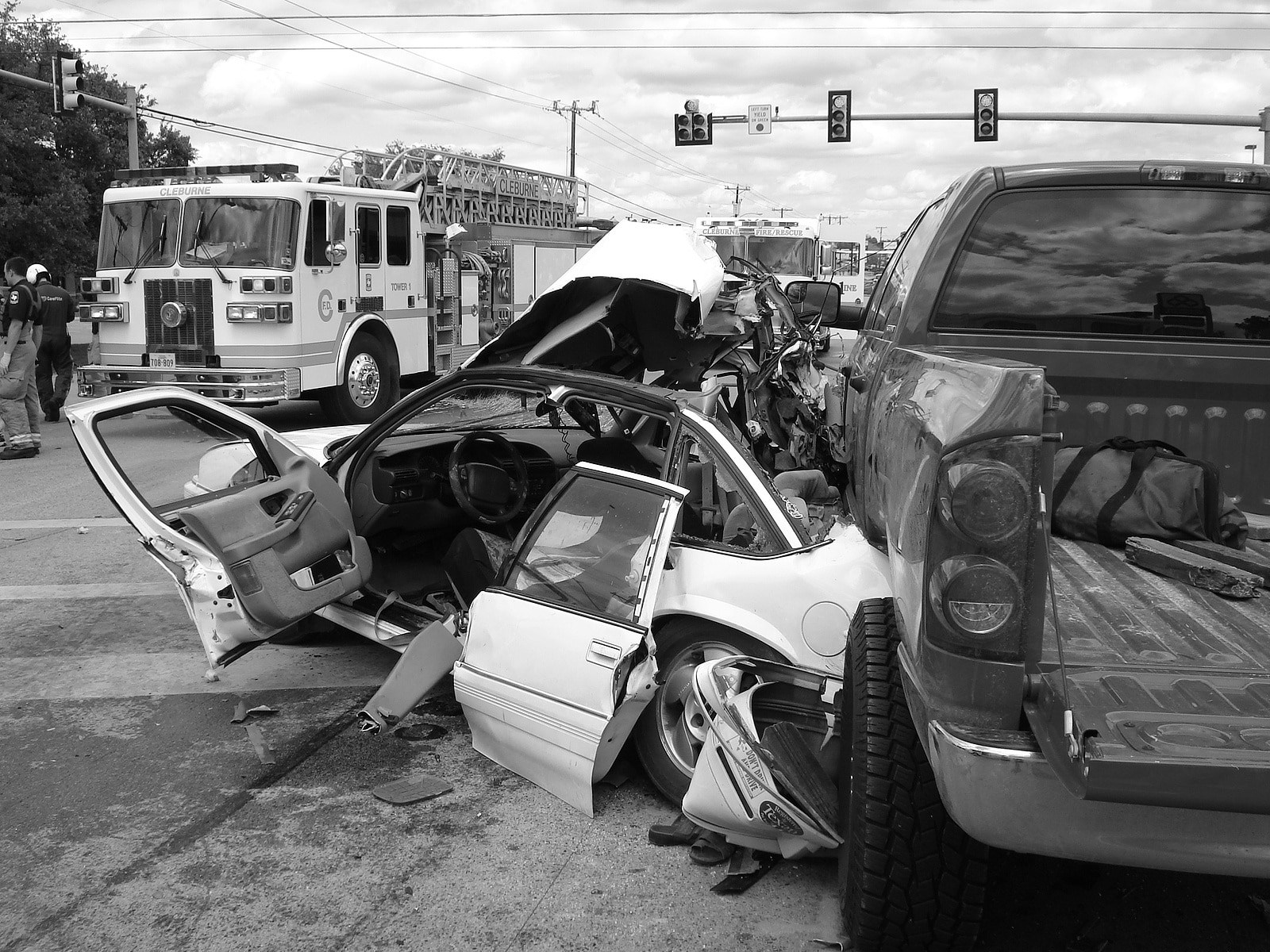
After being in a car accident, dealing with your insurance company is one of the most tedious and overwhelming steps of the post-accident process. While you might think your insurance company is supposed to have your back in times of trouble, that’s not how it works.
Since insurance companies are profit-driven businesses, their ultimate goal is to protect their bottom line by denying or undervaluing claims filed by policyholders. This goal is often achieved by making policyholders say things that can weaken or destroy their case.
For this reason, you should be careful what you say to your insurer. In fact, it is best to hire a car accident attorney in New Port Richey immediately and have them handle all insurance communications for you.
Reporting a Car Accident to Your Insurance Company: Do’s and Don’ts

Most insurance companies require their policyholders to report accidents within a reasonable time or within the timeframe specified in the insurance policy. However, reporting a car accident to your insurance company can quickly turn into what might feel like an interrogation.
Since many people tend to say things they shouldn’t and things that come back to haunt them later when making a report to their insurance company, we decided to put together this quick guide to the do’s and don’ts when reporting a car crash to the insurer:
- DO remain calm and polite. Do keep your composure when communicating with your insurance representative. Maintain a clear head to provide accurate information about the accident.
- DO contact the insurance company as soon as possible. Do contact your insurance company as quickly as possible after the accident. Prompt reporting can facilitate a smoother claim process. Failure to report the accident within a reasonable time can jeopardize your claim.
- DO provide only basic facts about the accident. Do share the essential details of the accident, including time, date, location, and the vehicles involved. Avoid any subjective or speculative comments.
- DO choose your words carefully when speaking with the insurer. Do think before you speak. The language you use when reporting an accident can imply fault or liability, even if done unintentionally.
- DO say you would like to speak to your lawyer before providing recorded statements or signing anything. Do express your preference to consult with your car accident attorney before giving any formal statements, especially those that are recorded, or signing any documents.
- DO NOT admit fault. Do not apologize or admit fault when discussing the accident with your insurer. Liability is a complex matter that often requires a skilled attorney’s independent and thorough investigation.
- DO NOT speculate about how the accident happened. Do not explain how or why the accident occurred beyond what you know. Speculation can do irreparable damage to your claim.
- DO NOT talk about your injuries before you receive medical attention. Do not assert the absence of injuries or downplay your injuries until after a thorough medical evaluation, as some issues may not be immediately apparent.
- DO NOT volunteer any additional information beyond what is requested. Do not volunteer unrequested information. Answer what is asked, and keep your responses brief, factual, and concise.
- DO NOT agree to be recorded. Do not consent to having your phone conversation recorded. You have no obligation to agree to a recording, and you can politely decline, mainly if you haven’t discussed this matter with a lawyer.
Following these dos and don’ts can help reduce the stress and uncertainty associated with dealing directly with the insurance company. Always consult with a car accident lawyer if you need clarification on the best course of action for your situation.
What You May Be Asked During Your First Conversation with the Insurance Company
As a policyholder, it is crucial to be prepared for the questions your insurance provider will ask during your first conversation. The more accurately and thoroughly you answer these questions, the smoother the claims process will tend to be.
Below is a breakdown of the basic questions you may be asked when you pick up the phone to report your car accident:
- When did the accident occur? You will need to provide the exact date and time of the accident. It is essential to be precise, as this can affect the validity of your claim. If you are uncertain about the exact time, provide an estimate.
- Where did the accident occur? Be ready to give a specific location. It includes street names, intersections, or landmarks near the site of the collision. It helps your insurer understand potential environmental factors at play.
- What is the vehicle you were driving at the time of the accident? You may be asked to describe your vehicle’s make, model, year, and color. If possible, have your vehicle identification number (VIN) and license plate number at hand.
- Were there any other vehicles involved? If other vehicles were part of the accident, you will need to provide similar details about those as well: their make, model, and any distinctive features. Information about the drivers, including their names, contact information, and insurance details, can also be requested.
- What type of damage was done to your vehicle? Give a general overview of the damages to your vehicle. Include which areas are affected and the severity of the damage to the best of your knowledge.
- Is your vehicle in need of repairs? Inform the insurance company if your vehicle is drivable or requires towing and repairs. Some insurers may ask their policyholders to take their vehicle to a certified repair shop for a detailed estimate.
- Do you have a police report? In addition to verbal questions, your insurer may request that you provide written documentation of the accident, including a copy of the police report, pictures of the accident scene, and any damage to your vehicle.

Below are some of the most common examples of the questions the insurance company may ask you that you have no obligation to answer – at least not until you have consulted with your car accident lawyer or have more information to provide a well-informed answer:
- Where were you going when the accident happened? Insurance adjusters may ask this to establish a context for the accident or make the accident your fault (e.g., you were going home from a bar, which the insurer may argue was related to drunk driving), but your destination is typically irrelevant to the claim process.
- Were you wearing a seatbelt at the time of the accident? Though seatbelt use is critical for safety, you might not wish to disclose this information immediately as it can influence liability decisions, especially if you were not buckled up during the crash.
- How did the accident occur? While you will eventually need to provide a factual account, initially, you may want to consult with an attorney before giving details about possible causes of the accident.
- Did anyone witness the accident? You may be asked to provide witness information. Be aware that you do not need to answer this until you have legal counsel to advise on the best action.
- Were you injured? If so, how badly? Even if you believe you were not injured, symptoms can appear later. It is often the case with whiplash, which affects two million Americans every year. It is best to consult a doctor first and know the complete and accurate diagnosis before disclosing any information regarding the type and severity of your injuries.
- Were you treated by a paramedic at the scene or transported to a hospital? Details about medical treatment can wait until you have gained complete insight into your condition and have spoken to an attorney.
Reporting an accident can be a stressful experience, but knowing what to expect can help alleviate some of that stress. Often, insurance companies will press the policyholder to answer questions they do not want to answer or even argue that not giving an answer right away can hurt their compensation claim. However, you are not obligated to answer any questions, especially if you are unsure how to answer them correctly. You can politely refuse to respond by saying something along the lines of, “I am not prepared to discuss this matter right now” or “I cannot say anything about my injuries at this point – I will follow up with you once I hear more information from my doctor.”
Things You Should NOT Tell Your Insurance Company After an Accident
Every year, about 40 million Americans visit an emergency room for injuries, many of which are the result of car accidents. Amid the chaos following a car crash, it’s easy to say too much or the wrong thing to your insurance company, which can hinder your claim or affect your ability to receive fair compensation. Below are some of the things you should not say during conversations with the insurance claims adjuster or other representatives of your insurance company:
- “I’m fine.” You might instinctively say this to reassure the seemingly friendly and caring adjuster or minimize the situation, but it can be interpreted as you having no injuries or that your injuries are not severe. As mentioned earlier, avoid discussing the types and severity of your injuries until you know the complete picture.
- “It was my fault.” Even if you believe you contributed to the accident, refrain from admitting fault or making statements that can be interpreted as your admission of fault. There are many factors at play, and fault is not always clear-cut, which is why you should speak with a lawyer before making any conclusions regarding fault and liability.
- “Yes, I accept your offer.” Your initial compensation offer may be lower than you are entitled to. Accepting the offer too soon can leave you unable to pay all your bills and cover all your expenses. Always review offers thoroughly and consider consulting with an attorney before accepting.
- “I don’t have a lawyer and won’t hire one.” Saying that you won’t seek legal counsel can make you an easy target for a lower settlement in the eyes of the insurance company. You reserve the right to hire an attorney to look after your interests anytime.
- Anything that begins with “I think” or “I believe.” These statements suggest uncertainty and can be used to undermine your credibility or the accuracy of your account of events. Only share facts that you are sure about.
- Anything that relates to the discussion of your injuries. Details about your injuries should be discussed with a medical professional and your car accident lawyer, not your insurance provider. They might misconstrue your words in an attempt to devalue your claim.
- Anything that the insurance company does not need to know. Stick to the basic facts of the accident: where, when, and the vehicles involved. Do not volunteer additional information or personal opinions about the accident or other parties involved.
Remember, claims adjusters are skilled at getting information that may inadvertently be used to devalue or deny your claim. Consulting with a car accident attorney after an accident ensures you will not tell your insurance company anything that can compromise your claim. An attorney can advise you on any communication with insurance companies, including formal recorded statements, to ensure your claim is handled fairly and justly.
How to Protect Yourself from the Insurance Company’s Tactics

While insurance is supposed to provide peace of mind, it is not uncommon for policyholders to navigate through an array of tactics deployed by insurance companies to minimize their payout. To ensure that you are adequately protected and fairly compensated, follow these strategies:
- Understand your policy. Make sure you have a complete understanding of your own insurance policy. It includes knowing your accident reporting deadlines, deductibles, limits, and the extent of coverage for damages and medical expenses. Reviewing your policy in detail can save you from surprises when you need to file a claim.
- Document everything. Proof is power. Document every aspect of your accident and subsequent interactions with the insurance company. These details can be crucial if disputes arise about your claim.
- Seek legal advice. Do not go through the claims process alone. You might want to consult an attorney if your insurance company is unfairly delaying, undervaluing, or denying your claim without valid reasons. An experienced car accident attorney can offer advice specific to your situation and guide you through your best course of action.
- Beware of quick settlement offers. Do not rush your decision – quick settlement offers might seem enticing, especially when bills start piling up. However, these initial proposals may not fully cover all your expenses from the car accident.
- Ask questions. Insurance policies and the claims process can be filled with jargon. Feel free to ask your claims adjuster for clarification on anything you need help understanding. Make a list of questions you have regarding your coverage, the assessment of damages, or the timeline of your claim. Clear communication is key to a transparent process.
By following these five tips, you can make obtaining compensation after a car accident less stressful and intimidating while ensuring that you are treated fairly and with the respect you deserve.



